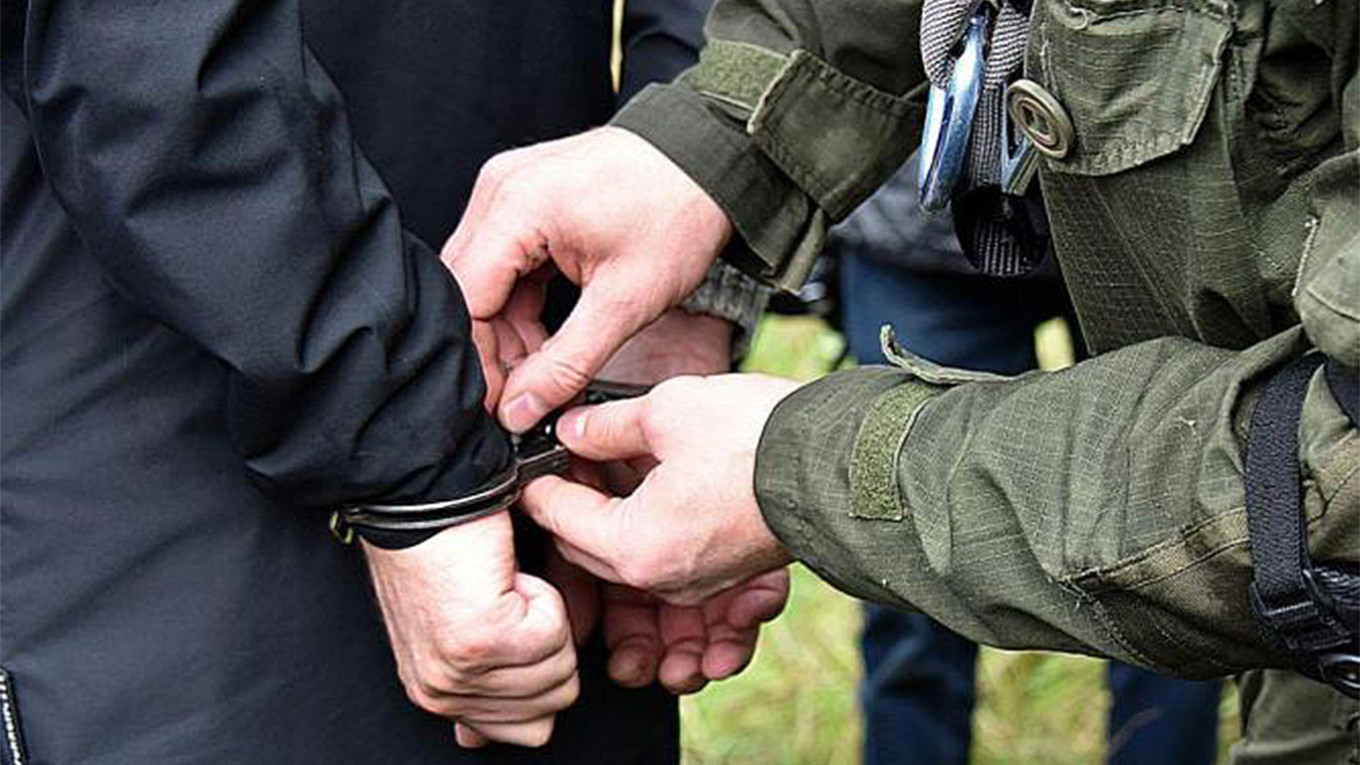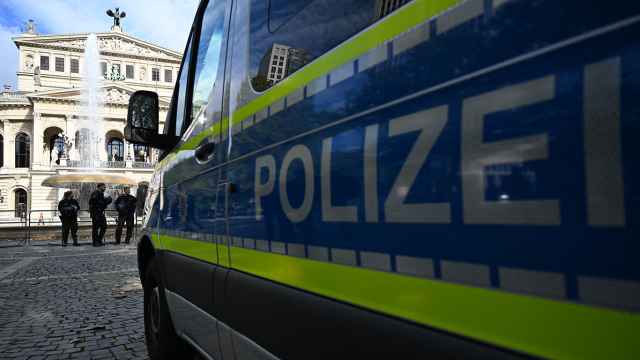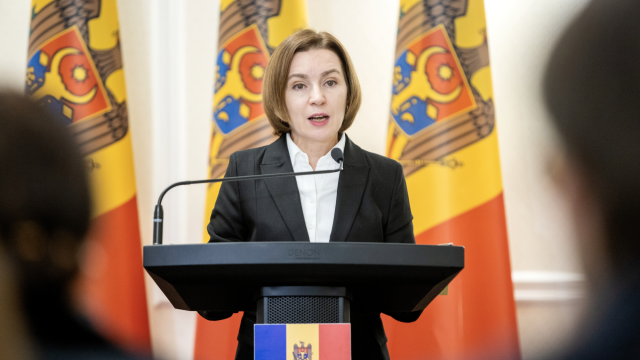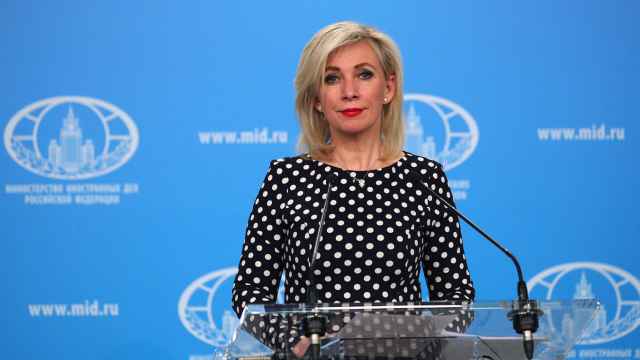The leader of Moldova's breakaway region said on Thursday that his government would appeal to the UN Security Council to probe a "terror" attack and ensure the security of Transnistria.
Pro-Russian authorities in the region earlier on Thursday accused Kyiv of planning such an attack, fueling fears of a spillover of the Ukraine conflict.
"I have already instructed the foreign minister to prepare appeals to all members of the UN Security Council," Transnistria leader Vadim Krasnoselsky told residents in a live broadcast, adding it was important to "look into this situation and ensure our safety."
He claimed that members of Ukraine's SBU security service were involved.
Kyiv denied the accusations and said any suggestions that Ukraine was behind an attack in Transnistria was a Kremlin-orchestrated plot.
Transnistria is a narrow strip of land in the east of the ex-Soviet republic that borders Ukraine. It separated from Moldova after fighting in 1992 and Russia has maintained a contingent of troops there since.
Authorities in Tiraspol, the breakaway region's administrative center, said they had detained two people and brought a raft of charges against them, including espionage, treason and terror offenses.
Investigators said the suspects were operating under the control of representatives of Ukraine's SBU security service "to carry out the murder of officials."
They said the members of the sabotage group had planned to carry out the "terrorist act" on a busy road in the center of Tiraspol.
The foreign minister said their plan was to detonate explosives near the separatist leader's motorcade.
Moldova to investigate
Kyiv, which has become a close ally of the government in Moldova since the beginning of Russia's military intervention in Ukraine last year, dismissed the allegations.
"Any statements by representatives... of the fake 'People's Republic of Transnistria' regarding the participation of the SBU in the preparation of a terrorist attack should be considered exclusively as a provocation orchestrated by the Kremlin," the SBU said in a statement.
Officials in the Moldovan capital Chisinau said they were ready to respond to any security threats and that they were investigating the claims of the alleged attack.
"We don't have confirmation of these things," Prime Minister Dorin Recean told reporters.
"The government is ready to deal with provocations."
The government said it was "investigating the information about an alleged 'terrorist' attack in the Transnistrian region."
Separatist security officials said that the detained suspects had confessed.
Transnistria's prosecutor Anatoly Guretsky said they targeted "top officials" in Tiraspol.
"They planned for there to be many victims because the terrorist attack was meant to take place in the centre of the capital."
Tensions high
State-run television channel First Pridnestrovian said the suspects had planned to detonate a Land Rover with eight kilograms (18 pounds) of explosives.
The channel also aired images of an alleged perpetrator, a 40-year-old man who the channel reported "received orders from the Ukrainian security services."
Moldova, a poor country of 2.6 million people with a sizeable Russian minority, has taken a pro-Western turn in recent years, angering Moscow.
Since the launch of the offensive in Ukraine a year ago, the Kremlin has been accused of raising tensions in Transnistria.
In late February, Russia accused Ukraine of stepping up preparations for an attack in Transnistria.
The government of Moldova dismissed the allegations and called for calm at the time.
Moldovan President Maia Sandu last month accused Russia of plotting to violently overthrow her government through saboteurs disguised as anti-government protesters, claims that Russia denied.
A Message from The Moscow Times:
Dear readers,
We are facing unprecedented challenges. Russia's Prosecutor General's Office has designated The Moscow Times as an "undesirable" organization, criminalizing our work and putting our staff at risk of prosecution. This follows our earlier unjust labeling as a "foreign agent."
These actions are direct attempts to silence independent journalism in Russia. The authorities claim our work "discredits the decisions of the Russian leadership." We see things differently: we strive to provide accurate, unbiased reporting on Russia.
We, the journalists of The Moscow Times, refuse to be silenced. But to continue our work, we need your help.
Your support, no matter how small, makes a world of difference. If you can, please support us monthly starting from just $2. It's quick to set up, and every contribution makes a significant impact.
By supporting The Moscow Times, you're defending open, independent journalism in the face of repression. Thank you for standing with us.
Remind me later.






